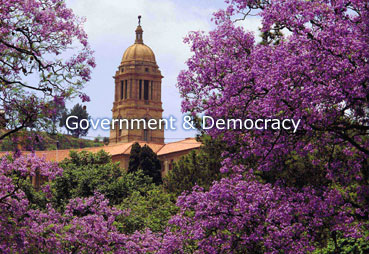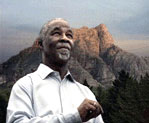
 |
 |
 |
 |
 |
 |
 |
 |
 |
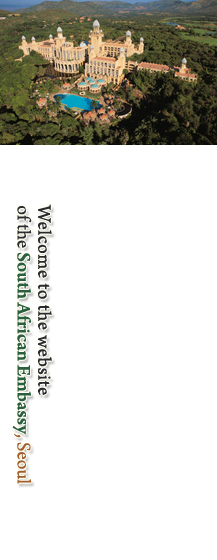
| CONSTITUTIONAL DEMOCRACY : |
South Africa is a constitutional democracy with a three-tier system of government and an independent judiciary.
South Africa's constitution is the world's most progressive, drawing on the experiences of advanced democracies. It stipulates such rights as freedom of expression and association, equality, political and property rights, education and health care, access to information and the courts. It prohibits discrimination against homosexuals and people with disabilities. There are few places in the world where constitutional rights figure so prominently in public discourse. And the government actively encourages greater gender and racial equality in both public and corporate life.
The national, provincial and local levels of government all have legislative and executive authority in their own spheres, and is defined in the Constitution as "distinctive, interdependent and interrelated".
Operating at both national and provincial levels are advisory bodies drawn from South Africa's traditional leaders.
It is a stated intention in the Constitution that the country is run on a system of co-operative governance.
| PARLIAMENT : |
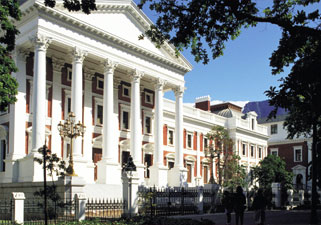 |
Legislative authority is vested in Parliament, which is situated in Cape Town and consists of two houses, the National Assembly and the National Council of Provinces. Parliament is bound by the Constitution and must act within its limits. (* Photo: South African Tourism) |
| The National Assembly : |
The National Assembly consists of no fewer than 350 and no more than 400 members elected for a five-year term on the basis of a common voters’ roll. It is presided over by a Speaker, assisted by a Deputy Speaker.
The number of National Assembly seats awarded to each political party is in proportion to the outcome of the national election, which is held every five years. The last election was in 2004.
| The National Council of Provinces : |
Also participating in the legislative process is the National Council of Provinces (NCOP), a body created to achieve co-operative governance and participatory democracy. Each of South Africa’s nine provinces sends 10 representatives to the NCOP. There is a formula to ensure that each province’s delegation includes representation by minority parties.
| The President and the Cabinet : |
The President, elected by the National Assembly from among its members, is the executive Head of State and leads the Cabinet. The President may not serve more than two five-year terms in office. The current President of South Africa is Mr. Thabo Mbeki.
The Cabinet consists of the President, the Deputy President and 25 Ministers. The President appoints the Deputy President and Ministers, assigns their powers and functions, and may dismiss them. All but two Ministers must be selected from among the members of the National Assembly. The members of Cabinet are accountable individually and collectively to Parliament. Deputy Ministers are also appointed by the President
|
'And I smiled, because South Africans are creating a new dawn every day.' South African President Thabo Mbeki |
![]() Letter from the President
Letter from the President
ANC Today, a weekly publication of the African National Congress, features a column by ANC President Thabo Mbeki.
![]() Video Clip: "I am an African."
Video Clip: "I am an African."
Get a glimpse of how it feels to be an African!
This video clip is 2.5Mb in size.
To see the video , you may download the clip here.
| LOCAL GOVERNMENT : |
Local government has a certain number of powers and functions. These are, however, subject to national and provincial legislation. Some of these include building regulations; municipal health services; fire-fighting services; municipal public transport; water and sanitation services; refuse removal and traffic regulations
| STATE INSTITUTIONS : |
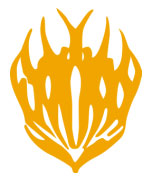 |
||
| State institutions created to support constitutional democracy are the Public Protector; the Human Rights Commission; the Commission for the Promotion and Protection of the Rights of Cultural, Religious and Linguistic Communities; the Commission for Gender Equality; the Auditor-General and the Electoral Commission. | ||

